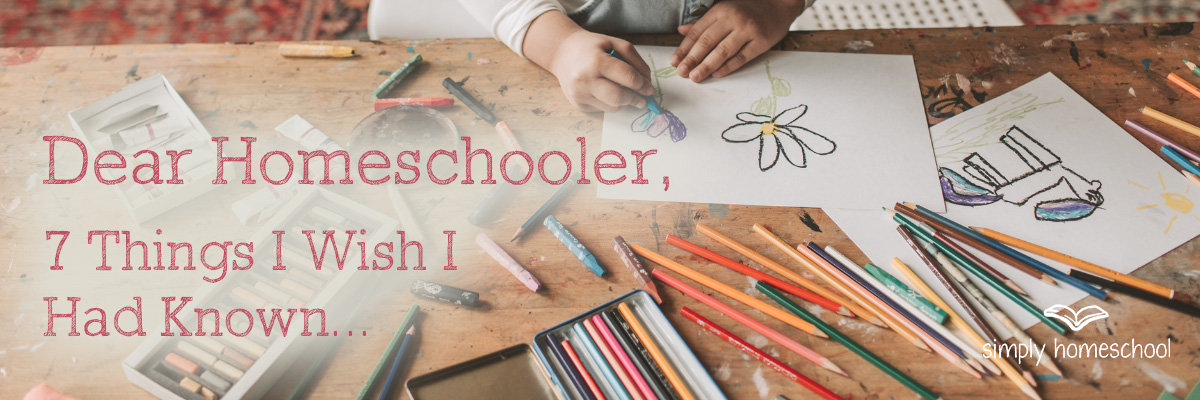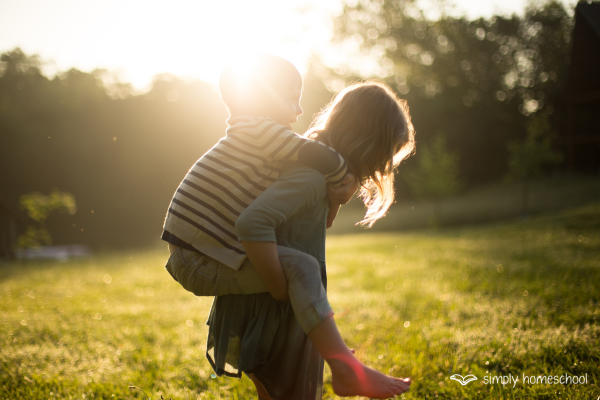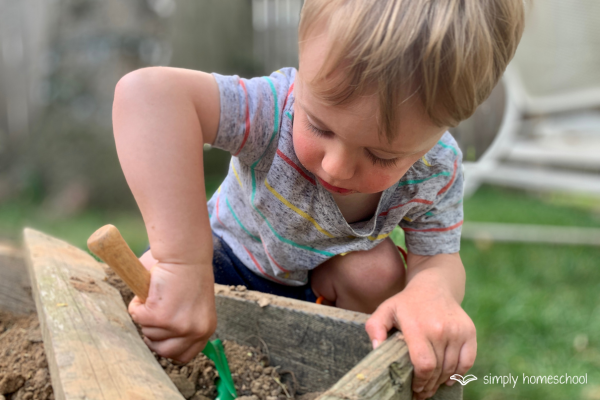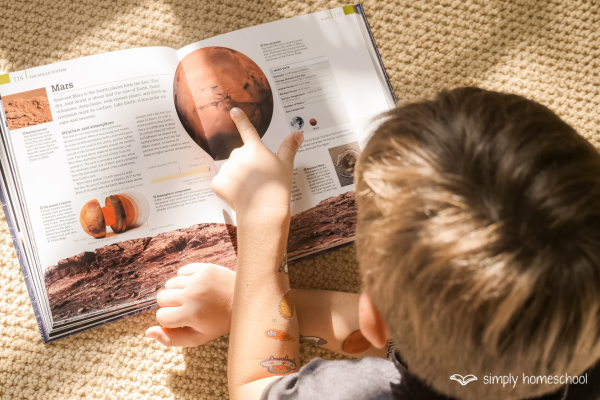Dear New Homeschooler: 7 Things I Wish I Had Known

Homeschooling – what a journey! When I first started, I had so many questions and a long list of worries. Will I get it right? Will my child be ok? Am I making a mistake by keeping them at home instead of sending them to ‘real’ school? Can I do this? I remember the self-doubt, the pressure, and the strong desire to do it all perfectly. But, like anything, the first few steps are always the hardest. Looking back now, there are some things I wish I could have told myself at the very beginning.

1. Take a deep breath. You’re doing better than you think.
First and foremost, relax. I can't stress that enough. I thought I had to have everything figured out from day one – what subjects to teach, how to organise every lesson, and the perfect schedule. I thought there was a ‘right’ way to homeschool, and I was terrified of not meeting some invisible standard. Now, I know better. The goal isn’t perfection – it’s to cultivate a love of learning and build a solid relationship with my child. If you’re stressing about how to teach them, you might just be missing the learning that is happening in the everyday moments. Trust me, they’ll learn every day, no matter what you’re doing. You don't need to have everything planned out; you just need to be present and enjoy the journey.

2. Don’t worry about ‘school at home’
My biggest mistake early on was thinking homeschooling had to be like school, just at home. This is understandable, though. For many of us, school is all we know about how children learn. But it doesn't need to be this way. You don’t need a whiteboard, desks, or a pile of worksheets. Your child doesn't need to sit for hours at a time. You don't need a school-like timetable to give your child the best possible education. Oftentimes, many families find the less formal structure, the better!
You don't need a classroom to make learning meaningful. Once you start to look, you'll see learning everywhere! When you cook together, your child is not only learning essential life skills, they are also learning maths, developing fine-motor skills, reading recipes and working on problem-solving skills. When you garden together, your child is learning about the lifecycle of insects, the role of spiders in an ecosystem, how pollination and photosynthesis work, and how seeds grow into plants. The learning is endless! Even just sitting in the yard watching a trail of ants is time well spent. Your child is learning to be still, look closely, and think critically as you talk together about what the ants are doing. You don't need to worry about whether you're doing 'enough school'. You’re already doing it!
Another essential part of learning is play. Play is so important, and it doesn't need to stop when your child is school-aged. The more they can play, the better! Play is a child's way of interacting and learning about the world. Follow your child's natural curiosity and embrace their playfulness. My son loves to build things outside, so we used sticks and rocks to do basic math. Simple, yet effective. Embrace the chaos and mess that can come with play, because that’s where the magic happens!

3. The power of consistency over quantity
In the early days, I would have moments of panic thinking that we weren’t doing enough or that we weren’t doing things ‘properly.’ I worried that if we didn’t follow a rigid schedule, I wouldn't have time to teach him all the things he needed to learn and he would fall 'behind'. But here's the truth: It’s not about doing it all – it's about being consistent. Half an hour (or even 15 minutes!) of real, focused learning every day is far more valuable than hours of distracted work. Consistency builds trust, routine, and confidence in both you and your child. Consistency doesn’t mean endless workbooks or forced lessons. It means making learning a part of your day in whatever way works for you.
4. Don’t buy all the things!
Ah, the homeschool shopping spree. I remember it well. I went a little overboard in the beginning, thinking we needed every book, game, and supply under the sun. Spoiler alert: most of it went unused. It turns out that a few well-chosen resources and a lot of creativity are all you really need. Sure, have a few favourite books and tools on hand, but don't let yourself get bogged down with piles of unused resources. This just leads to more feelings of failure - and we don't need another reason to get down on ourselves! Trust me, less is more. Some of the best learning resources are often the ones you already have – nature, your kitchen, your backyard, the library, your community, and yourself!
5. Be gentle with yourself – and with them
Homeschooling isn’t always easy. There will be days when you feel like you’ve totally failed, and your kids will have their own moments of frustration. But remember it’s ok to have rough days - we all do. Some seasons of life are more difficult than others. And like all seasons, they do pass. You are doing your best, and that’s enough. Be kind to yourself when things don’t go as planned. Some days, just having everyone fed and in relatively good spirits is enough. Remember, learning is happening all the time, even if you didn't get to what you planned today. It's ok to put the plan aside and go to the park, or the beach, or just walk to the shop for an ice-cream. Keep your eyes on the bigger picture. You’re nurturing a love of learning, a bond with your child, and giving them the time and freedom to grow at their own pace.

6. Find your community
Homeschooling can sometimes feel isolating, especially when you're just starting out. I wish I had known earlier how crucial it is to find a homeschooling community. Whether online or in person, connecting with other families will help you feel supported, inspired, and less alone. The friendships you’ll form will be invaluable, both for you and your children. These are the people who understand your struggles, celebrate your victories, and help remind you that you’re not in this alone. If you’re feeling uncertain, take the leap and reach out to others. It makes all the difference.
7. It’s okay to go at their pace
Finally, one of the best things I’ve learned along the way is to stop worrying about what kids at school learn and to follow my child's lead instead. When my son was younger, I panicked about not having a strict curriculum and schedule, but like I said before, he was learning all the time, even when I wasn’t actively teaching him. Every walk, every trip to the supermarket, every moment spent outside was a learning opportunity. Try not to force your child into a box or rush them through milestones. Release yourself and your child from that pressure. Let them savour the process of learning - let them take their time. Sometimes all your child needs is time. If they are struggling to understand a concept, set it aside for now and revisit it when they are ready. Not being able to do something when school teaches it is not an indicator of future failure! Remember, homeschooling is not about hitting a checklist; it’s about developing a lifelong love for learning and a strong sense of self-confidence within your child.

Conclusion: Relax, enjoy, and let it happen
When I first started homeschooling, I was so concerned with doing it ‘right.’ But over the years, I’ve realised that the most important thing is not the curriculum or the schedule – it’s the love of learning. Let that guide you. The process will have its ups and downs, but if you can let go of expectations, connect with your children and enjoy the ride, you’re on the right path.
So, take a moment to centre yourself. You’re doing great. Your kids are learning, and so are you. Relax and embrace the journey. It’s a wild, wonderful adventure – and you’ve got this.
With love,
An experienced homeschooler
